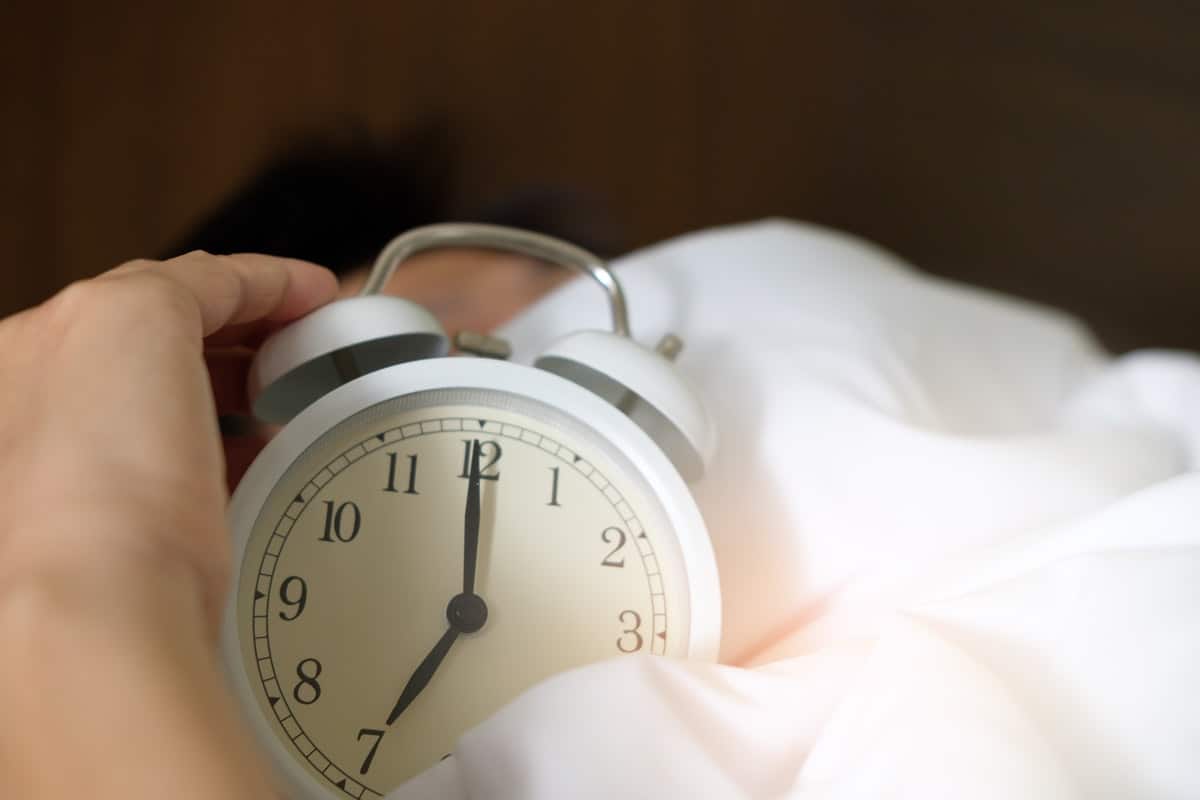
Do you have trouble waking up in the mornings? Does your alarm clock sometimes fail to wake you? Or are you someone who habitually uses the snooze button! Many people find getting up in the morning difficult, and there are several reasons which we will discuss in the article that follows.
We’re here to talk about how to wake up in the morning, especially if you find it hard. Most of us take some time to truly wake up from a night’s sleep, so let’s begin by looking at reasons why waking from sleep can be difficult for many people.
Why Waking Can Be Difficult
In general, three aspects affect a person’s ability to wake easily: medical conditions, certain medications, and lifestyle. We’ll start by listing some of the medical problems that might influence the ability to wake:
- Night terrors, sleepwalking, and talking in one’s sleep are all classed as ‘parasomnias.’ These conditions affect the sleep rhythm making it difficult to get a full night’s sleep. The person involved is therefore still tired come morning.
- Sleep apnea is a surprisingly common condition in which a person stops breathing for a short time during sleep, and this has the same effect as the above.
- Not getting enough sleep – known as sleep deficiency and deprivation – are conditions that can be medical or brought about by lifestyle.
- Stress, anxiety, and depression can all have a detrimental effect on the ability to sleep.
- Chronic pain can also affect sleep patterns, as can circadian rhythm sleep disorders in which the person finds it difficult to get to sleep.
Medications such as muscle relaxants, beta-blockers, and antidepressants are among those that can negatively affect sleep. Also, a healthy balanced diet will help with sleep, while a poor diet may be detrimental. Finally, drinking too much alcohol induces sleep that is not relaxed and natural and can leave the person feeling tired the next day.
If you suffer any of the above conditions, it is wise to talk to a medical professional about your problem sleeping. A proper sleep routine is important to your health, so you should consider taking advice on getting started on settling into a routine.
Now that we know some of the causes of poor sleeping routines let’s talk about what you can do to help you wake more readily.
Don’t Use The Snooze!
If you are finding it hard to battle the snooze button in the morning, consider specifically designed alarm clocks for snooze abusers. In addition, here are some tips that should help you wake up in the morning:
- Move your alarm away from the bedside, so you need to get out of bed to hit the snooze button.
- Avoid activities that affect the circadian rhythm in a short time before you go to bed. This includes looking at a computer or phone screen, drinking caffeine or alcohol, and napping during the day.
- Stick to the same sleep schedule – go to bed and get up at the same time – every day, including days off, so you get into a good rhythm.
- Eat more fruit, vegetable, and foods rich in Omega-3 fatty acids as these create energy that you will burn off.
- Exercise more so that you put your body to work more regularly.
- Take in the daylight as it is good for you and your circadian rhythm.
If you are having problems waking or sleeping, we recommend you talk to a doctor who may advise you to undergo a sleep study. This is where trained professionals will analyze your sleep pattern to get to the root of the problem.
Also, sleep aids, including medication for poor sleep patterns, and you must have sleep apnea treated as it can be very dangerous and potentially fatal.
Some Alarm Clock Suggestions
It might be that you simply need a new alarm clock to wake you up in the morning! Perhaps one that is very loud and doesn’t include a snooze button? However, once you settle into your new sleep routine, get onto that healthy diet and exercise, and begin enjoying a good night’s sleep each time, you will find it easier to wake and get up in the mornings.
Modern alarm clocks can also be sleep aids. For example, the Phillips Smart Sleep is a clever device that uses light rather than sound in waking you up. It does so by simulating a sunrise with a controlled change in lighting from a soft orange light to begin with, and eventually a bright white light. This slow and natural approach works with the circadian rhythm to help wake in the morning.
The same routine can be used when going to sleep in reverse, while the device comes with sensors that monitor temperature and noise level, among other things that it uses to fine-tune your sleep and wake lighting solution. This is a smart alarm clock that takes things to another level.
Another clever and effective device is the Ruggie Alarm Mat. This takes the form of a rug that you place by the side of the bed. At the given time, it emits a sound – you can use its standard alarm or upload your tunes to the Ruggie – which will not stop until you physically stand on it for between 3 and 30 seconds. Once up, the temptation to simply get back in and go back to sleep is lessened.
Conclusion
Some of the causes of poor sleeping patterns that make it difficult to wake are serious, such as sleep apnea. This needs professional medical help urgently. Others, however, are the result of lifestyle habits and can be attended to by changing these. Nevertheless, a good amount of sleep is essential for good all-around physical and mental health, and the above tips should help you get into a suitable rhythm and improve your sleep pattern and ability to wake refreshed for the day ahead.





















Add Comment